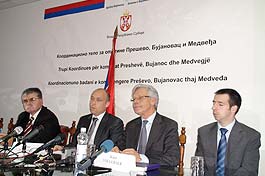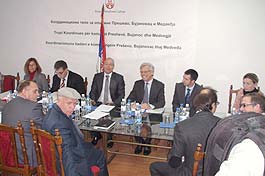- 2021
- December (1)
- March (87)
- February (60)
- January (35)
- 2020
- December (109)
- November (111)
- October (109)
- September (114)
- August (22)
- July (129)
- June (116)
- May (93)
- April (106)
- March (114)
- February (53)
- January (31)
- 2019
- December (37)
- November (72)
- October (52)
- September (43)
- August (65)
- July (55)
- June (14)
- May (55)
- April (72)
- March (28)
- February (1)
- January (12)
- 2018
- December (49)
- November (45)
- October (44)
- September (31)
- August (61)
- July (46)
- June (48)
- May (33)
- April (61)
- March (53)
- February (45)
- January (50)
- 2017
- December (46)
- November (56)
- October (60)
- September (20)
- August (56)
- July (61)
- June (58)
- May (28)
- April (44)
- March (57)
- February (54)
- January (42)
- 2016
- December (55)
- November (70)
- October (73)
- September (24)
- August (50)
- July (47)
- June (61)
- May (19)
- April (48)
- March (47)
- February (33)
- January (45)
- 2015
- December (43)
- November (39)
- October (53)
- September (55)
- August (19)
- July (47)
- June (28)
- May (26)
- April (54)
- March (55)
- February (29)
- January (30)
- 2014
- December (26)
- November (48)
- October (44)
- September (30)
- August (28)
- July (30)
- June (23)
- May (53)
- April (30)
- March (25)
- February (31)
- January (16)
- 2013
- December (23)
- November (29)
- October (34)
- September (12)
- August (15)
- July (23)
- June (12)
- May (24)
- April (12)
- March (14)
- February (22)
- January (15)
- 2012
- December (16)
- November (30)
- October (28)
- September (4)
- August (14)
- July (15)
- June (3)
- May (5)
- April (7)
- March (14)
- February (8)
- January (9)
- 2011
- December (8)
- November (17)
- October (17)
- September (16)
- August (11)
- July (14)
- June (8)
- May (16)
- April (12)
- March (20)
- February (11)
- January (7)
- 2010
- December (3)
- November (8)
- October (18)
- September (19)
- August (12)
- July (16)
- June (21)
- May (15)
- April (12)
- March (15)
- February (22)
- January (11)
- 2009
- December (13)
- November (16)
- October (10)
- September (12)
- August (5)
- July (15)
- June (15)
- May (9)
- April (15)
- March (6)
- February (14)
- January (6)
- 2008
- December (9)
- November (5)
- October (2)
- September (2)
- August (1)
- July (1)
- June (1)
- April (4)
- February (1)
- January (3)
- 2007
- December (1)
- November (2)
- October (6)
MULTI-ETHNIC FACULTY IN BUJANOVAC
 On Wednesady, October 6, 2010, a special working group for higher education in South Serbia, which includes representatives of the Ministry of Education, the Coordination Body of the Government of Republic of Serbia for the Municipalities of Presevo, Bujanovac and Medvedja, the Albanian National Council, as well as national and international experts, produced a recommendation on the opening of an institution of higer education in Bujanovac, where economics would be studied.
On Wednesady, October 6, 2010, a special working group for higher education in South Serbia, which includes representatives of the Ministry of Education, the Coordination Body of the Government of Republic of Serbia for the Municipalities of Presevo, Bujanovac and Medvedja, the Albanian National Council, as well as national and international experts, produced a recommendation on the opening of an institution of higer education in Bujanovac, where economics would be studied.
The session of the special working group was followd by by a press-conference that was given by Milan Markovic, President of the Coordination Body, Knut Vollebaek, OSCE High Commissioner on National Minorities, and Zoran Kostic, Assistant Minister of Education. Minister Markovic said that a decision to open a depeartment of the faculty of economics in Bujanovac was reached by consensus, adding that „deciding on all the issues was left to those who professionaly deal with establihment of national minorities, since we don't want education to become a political topic.“
On this occasion, Minister Markovic voiced hope that first students would enroll at the Bujanovac Faculty of Economics' courses next year and that the said institution of higher education would be a means for linking Serbian, Albanian and Roma communities.
”It is important for students, upon completion of their studies, to be ready to work at any governmental institution”, said President of the Coordination Body, pointing out that a faculty shouldn’t be a place where students should be segregated, but a place where they would learn how to study and live together, thereby contributing to their community.
„The Serbian government is aware of the problems existing in the field of education in Presevo, Bujanovac and Medvedja, in particular of those relating to members of the Albanian national minority“, said Minister Markovic. He also stated that the Albanian National Council, which was recently establihed, was an important body for solving the education-related issues.
Knut Vollebaek, Commissioner on National Minorities, said that the field of education was important to every single individual, as well as to the whole region, because it had an impact on its development, integrations and sustainability.
”I am glad that an institution of higher education is going to be opened for Albanian - speaking citizens. However, the institution is going to be a multi-ethnic one, open to all interested citizens of the region”, Mr. Vollebaek said.
 „The OSCE closely follows developments in the field of education in South Serbia through its Bujanovac-based office. We are of the view that the Serbian Government and the Coordination Body make considerable efforts to solve those problems. Education is an important issue for everyone, since it determies our life paths. However, it is also important for integrating members of a community in the society in which they live,“ Mr. Vollebaek underscored, pointing out that multi-ethnic education was a big challange to OSCE member states and that Serbia could use other countries' positive experiences and advice in the field.
„The OSCE closely follows developments in the field of education in South Serbia through its Bujanovac-based office. We are of the view that the Serbian Government and the Coordination Body make considerable efforts to solve those problems. Education is an important issue for everyone, since it determies our life paths. However, it is also important for integrating members of a community in the society in which they live,“ Mr. Vollebaek underscored, pointing out that multi-ethnic education was a big challange to OSCE member states and that Serbia could use other countries' positive experiences and advice in the field.
Zoran Kostic, Assistant Minister of Education, said that the issue of textbooks in Albanian would be resolved by the end of October and that, for the time being, education in the languages of ethnic minorities was governed by the corresponding law.